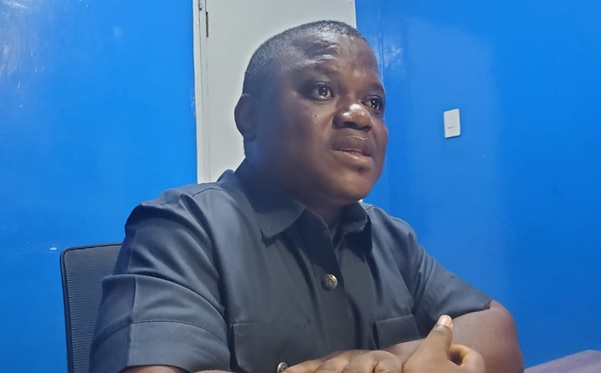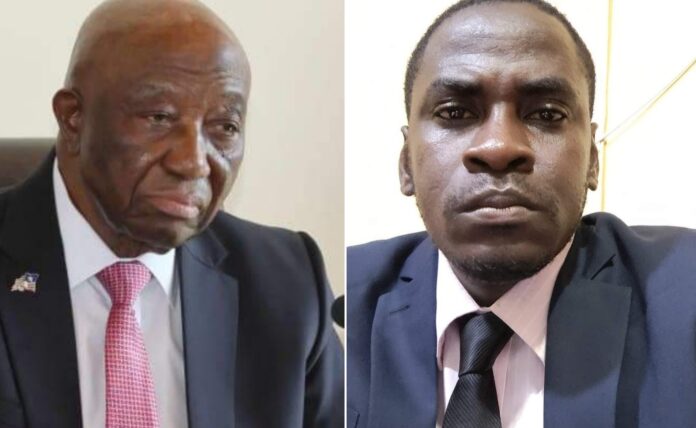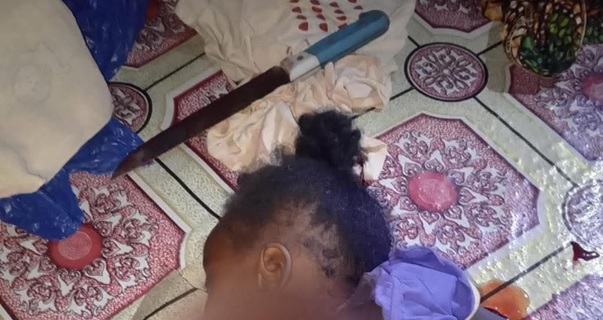MONROVIA, LIBERIA – Anderson D. Miamen, Executive Director of the Center for Transparency and Accountability in Liberia (CENTAL), has expressed disappointment in President Joseph Boakai’s failure to act decisively against non-compliant officials following his asset declaration mandate. Miamen’s remarks, published on January 10, 2025, under the title “President Boakai Must Go Beyond Words and Act,” highlight what he describes as the president’s passivity in tackling corruption within his administration.
Miamen criticized President Boakai for allowing nearly a month to pass since the two-week ultimatum for asset declarations elapsed without taking any public action. “Recently, President Boakai gave a two-week ultimatum to his defiant officials to belatedly declare their assets, incomes, and liabilities with the Liberia Anti-Corruption Commission (LACC). Sadly, he has not said a word since the deadline elapsed nearly a month ago,” Miamen wrote. He warned that selective actions, such as inconsistent suspensions or dismissals of officials accused of corruption, threaten to undermine the administration’s credibility in combating graft.
CENTAL’s criticism stems from the backdrop of Boakai’s November 2024 directive, which required all appointed officials to declare their assets within ten days. The directive, issued on November 27, 2024, came after widespread violations of the 2014 Code of Conduct Law, specifically Article 2, Section 10.2(h), which mandates that officials declare their assets within 30 days of appointment. In his announcement, Boakai emphasized that non-compliance undermines public trust and pledged strict enforcement of the law.
The LACC had earlier revealed, in September 2024, significant non-compliance among high-ranking officials despite a grace period offered in August. The commission’s report named several prominent figures, including Julius M. Sele, Eugene L. Fahngon, Major General Daniel Ziankahn, and Ambassador George Wallace, as among those who failed to submit their asset declarations. The report underscored how such disregard for legal obligations erodes public confidence in governance and hinders the fight against corruption.
Asset declaration is a critical tool for promoting transparency, monitoring officials’ wealth, and identifying potential conflicts of interest or illicit enrichment. The failure of senior officials to comply with the law not only violates legal requirements but also betrays the trust of the Liberian people, the LACC noted. Despite calls for immediate adherence, a significant number of government officials have yet to fulfill their obligations.
In response to the LACC’s findings, President Boakai issued what he described as a final warning in late November 2024. He reiterated that all non-compliant officials would face suspension if they failed to declare their assets within ten days. “Integrity and accountability are fundamental to public service,” Boakai stated at the time. “This directive is not optional; it is a legal obligation, and adherence is expected without delay.”
Miamen, however, believes the president’s subsequent silence on the matter undermines these commitments. He argued that Boakai’s approach so far amounts to “business as usual” and contradicts his campaign promises to tackle corruption head-on. “If the president continues this way, including his selective actions in dismissing and suspending officials accused of corruption, it will be an uphill battle for him to make any significant gains in the fight against corruption,” Miamen warned.
CENTAL’s critique highlights the broader challenge of enforcing transparency and accountability in Liberia. As public frustration grows, President Boakai faces mounting pressure to demonstrate leadership in addressing corruption and ensuring compliance with asset declaration laws. Observers say the president’s next steps will determine whether his administration can restore public confidence and deliver on its promises of good governance.
Miamen concluded by urging President Boakai to move beyond rhetoric and act decisively. Without consistent enforcement of accountability measures, he argued, Liberia risks further entrenching a culture of impunity and corruption at the highest levels of government.







